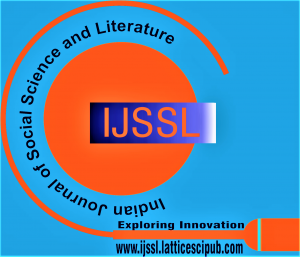![]()
Conspectus Articulate on Violent Victimization of Indian-Foreigners in Homicide Crime
Abhishek Pandey1, Sanjay B. Sonar2
1Abhishek Pandey, Department of Computer Science and Engineering, Institute of Advanced Research, Gandhinagar (Gujarat), India.
2Sanjay B. Sonar, Department of Computer Science and Engineering, Institute of Advanced Research, Gandhinagar (Gujarat), India.
Manuscript received on 19 May 2024 | Revised Manuscript received on 06 November 2024 | Manuscript Accepted on 15 December 2024 | Manuscript published on 30 December 2024 | PP: 13-18 | Volume-4 Issue-2, December 2024 | Retrieval Number: 100.1/ijssl.G96030612723 | DOI: 10.54105/ijssl.G9603.04021224
Open Access | Ethics and Policies | Cite | Zenodo | OJS | Indexing and Abstracting
© The Authors. Published by Lattice Science Publication (LSP). This is an open-access article under the CC-BY-NC-ND license (http://creativecommons.org/licenses/by-nc-nd/4.0/)
Abstract: In this study, the vulnerability of foreigners to crime in India is examined, with a particular emphasis on the article, which offers an account of a research project that looks at the many crimes committed against Indian expats and investigates their root reasons. The t-test is used to identify significant variations in instances over two years, and the ANOVA statistical tool is used to identify significant overall changes in the victimization rate. The National Crime Records Bureau of India’s official website (https://ncrb.gov.in/en/crime-india) served as the study’s data source. The data show that the most common crimes committed against Indian foreigners are theft, robbery, and assault. Most of these incidents take place in well-known tourist locations and big cities. The survey also underlines the difficulties foreigners encounter when reporting crimes to the Indian police, such as language hurdles and a lack of legal knowledge. This study intends to contribute to the development of effective solutions to reduce victimization risks and improve the overall experience of foreign tourists in India by addressing the causes and effects of crimes against Indian foreigners.
Keywords: Crime, Statistical Tools, Anova, Machine Learning
Scope of the Article: Social Science
